Full Zoom video of Seeking Delphi™ host Mark Sackler’s interview with Strangeworks CEO, whurley, on the current state of the art in quantum computing.
Get the latest international news and world events from around the world.
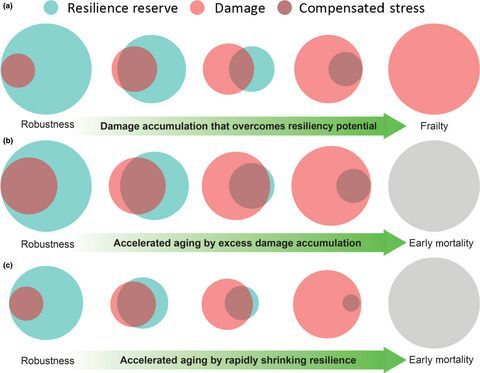
Measuring biological aging in humans: A quest
Progress in research is not linear. Periods characterized by rates of incremental knowledge are interlaced with “eureka” moments as milestone discoveries suddenly open new possibilities that thrust research and knowledge to a higher level. Galileo’s use of the telescope to explore the stars, Kary Mullis’s description of polymerase chain reaction, and Edwin Hubble’s demonstration that the universe is expanding are just few examples of these moments. The field of aging research is living one of those magical moments. Finding a reference metric for the rate of biological aging is key to understanding the molecular nature of the aging process. Defining and validating this metric in humans opens the door to a new kind of medicine that will overcome the limitation of current disease definitions, approaching health in a global perspective and bringing life course preventative measures to the center of attention.
I’m definitely not worried about the AI Apocalypse: John Giannandrea
John Giannandrea, Vice President of Engineering with responsibility for Google’s Computer Science Research and Machine Intelligence groups; leading teams in Machine Learning, Machine Intelligence, Computer Perception, Natural Language Understanding, and Quantum Computing, “I’m definitely not worried about the AI apocalypse, I just object to the hype and soundbites that some people are making” said at the TechCrunch Disrupt conference in San Francisco.
Google’s John Giannandrea sits down with Frederic Lardinois to discuss the AI hype/worry cycle and the importance, limitations, and acceleration of machine learning.
How to Slow Aging (and even reverse it)
Scientists like Prof Sinclair have evidence of speeding up, slowing, and even reversing aging.
Thanks to LastPass for sponsoring this video. Click here to start using LastPass: https://ve42.co/VeLP
What causes aging? According to Professor David Sinclair, it is a loss of information in our epigenome, the system of proteins like histones and chemical markers like methylation that turn on and off genes. Epigenetics allow different cell types to perform their specific functions — they are what differentiate a brain cell from a skin cell. Our DNA is constantly getting broken, by cosmic rays, UV radiation, free radicals, x-rays and regular cell division etc. When our cells repair that damage, the epigenome is not perfectly reset. And hence over time, noise accumulates in our epigenome. Our cells no longer perform their functions well.
To counter this decline, we can activate the body’s own defenses against aging by stressing the body. Eat less, eat less protein, engage in intense exercise, experience uncomfortable cold. When the body senses existential threats it triggers longevity genes, which attempt to maintain the body to ensure its survival until good times return. This may be the evolutionary legacy of early bacteria, which established these two modes of living (repair and protect vs grow and reproduce). Scientists are uncovering ways to mimic stresses on the body without the discomfort of fasting. Molecules like NMN also trigger sirtuins to monitor and repair the epigenome. This may slow aging.
Reversing aging requires an epigenetic reset, which may be possible using Yamanaka factors. These four factors can revert an adult cell into a pluripotent stem cell. Prof. Sinclair used three of the four factors to reverse aging in the retinal cells of old mice. He found they could see again after the treatment.
Special thanks to:
Professor David Sinclair, check out his book “Lifespan: Why We Age & Why We Don’t Have To“
Assistant Professor David Gold
Noemie Sierra (for polyp images)
Genepool Productions for telomere animations from Immortal: https://ve42.co/immortal
Epigenetics animations (DNA, histones, methylation etc) courtesy of: http://wehi.tv
Animation: Etsuko Uno
Art and Technical Direction: Drew Berry
Sound Design: Francois Tetaz & Emma Bortignon
Scientific Consultation: Marnie Blewitt
Courtesy of Walter and Eliza Hall Institute of Medical Research.
Filming, editing and animation by Jonny Hyman and Derek Muller.

Facebook says it can locate users who opt out of tracking
Facebook can determine where users are even if they opt out of having their whereabouts tracked, the company revealed in a letter sent to US senators.
In the missive, which was widely shared on social media Tuesday, Facebook explained ways it can still figure out where people are after they have selected not to share precise location data with the company.
The social network, which was responding to a request for information by two senators, contended that knowing a user’s whereabouts has benefits ranging from showing ads for nearby shops to fighting hackers and battling misinformation.
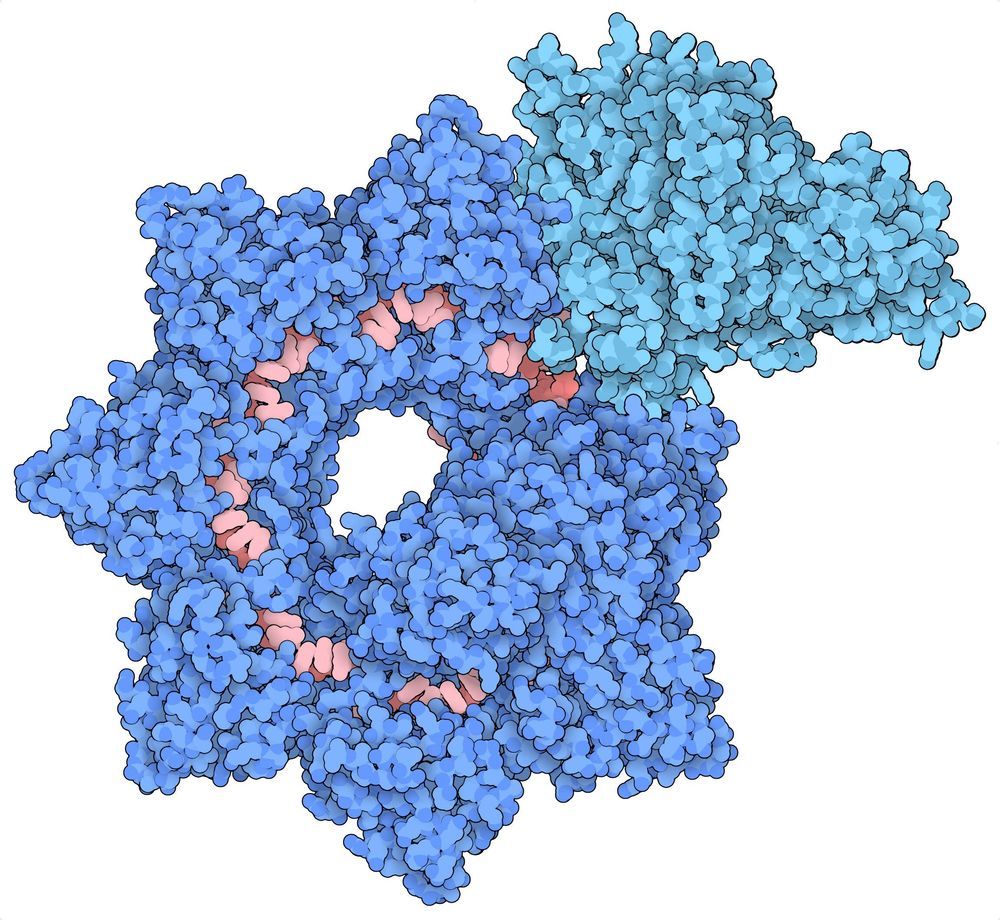
First images of an ‘upgraded’ CRISPR tool
Columbia scientists have captured the first images of a new gene editing tool that could improve upon existing CRISPR-based tools. The team developed the tool, called INTEGRATE, after discovering a unique “jumping gene” in Vibrio cholerae bacteria that could insert large genetic payloads in the genome without introducing DNA breaks.
In the new study, published today in Nature, the researchers harnessed a Nobel Prize-winning technique called cryo-electron microscopy to freeze the gene editing complex in action, revealing high-resolution details about how it works.
“We showed in our first study how to leverage INTEGRATE for targeted DNA insertions in bacterial cells,” says Sam Sternberg, Ph.D., assistant professor of biochemistry & molecular biophysics at Columbia University Vagelos College of Physicians and Surgeons, who led the research with Israel Fernandez, Ph.D., assistant professor of biochemistry & molecular biophysics at Columbia. “These new images, a wonderful collaboration with Israel Fernández’s lab, explain the biology with incredible molecular detail and will help us improve the system by guiding protein engineering efforts.”
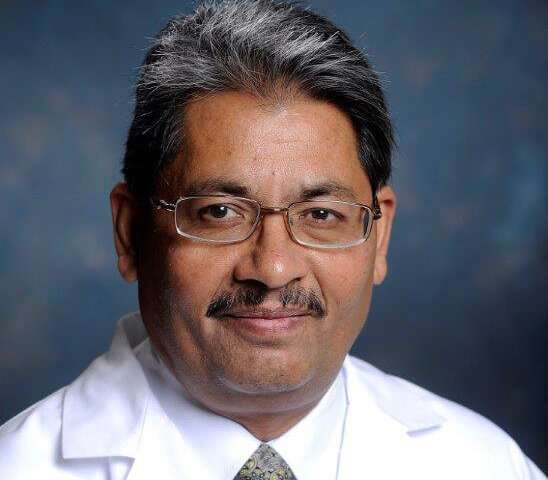
Cancer therapy may be aided by induced macropinocytosis, a rare form of cell death
In laboratory experiments, a metabolic inhibitor was able to kill a variety of human cancer cells of the skin, breast, lung, cervix and soft tissues through a non-apoptotic route—catastrophic macropinocytosis.
In mouse xenograft studies, the inhibitor acted synergistically with a common chemotherapy drug, cyclophosphamide, to reduce tumor growth. Thus macropinocytosis, a rarely described form of cell death, may aid in the treatment of cancer.
“Understanding the signaling pathways underlying macropinocytosis-associated cell death is an important step in developing additional effective strategies to treat neoplasms that are resistant to apoptosis induced by chemotherapy,” said Mohammad Athar, Ph.D., professor in the University of Alabama at Birmingham Department of Dermatology.

Advanced viral nanovaccine for cancer immunotherapy
Researchers at the University of Helsinki have discovered a novel system to generate an artificially enveloped oncolytic adenovirus to direct the immune response against cancer.
Virus-based cancer vaccines are nowadays considered an interesting approach in the field of cancer immunotherapy. Targeting tumor-associated antigens is proven to be effective. However, the identification of these antigens remains challenging.
Researchers at the Faculty of Pharmacy, Manlio Fusciello, from the research group led by Professor Vincenzo Cerullo, and Dr. Flavia Fontana, from the research group led by Professor Hélder Santos, and their co-workers, have developed ExtraCRAd, a novel cancer vaccine platform, consisting of an oncolytic adenovirus wrapped in an artificial envelope made of cancer-cell membrane. Oncolytic virus therapy uses modified viruses that can infect and destroy tumor cells but don’t harm normal cells.
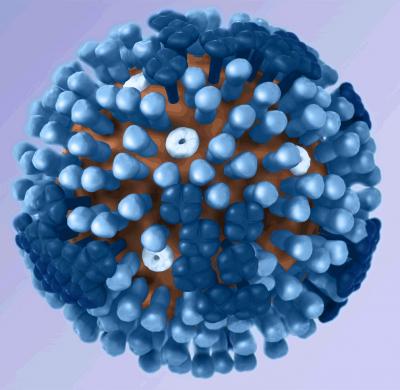
Eavesdropping on intimate ‘crosstalk’: Communication between immune and nervous systems in vaccination
Inhale flu viruses after vaccination, and the body responds with an explosion of flu-fighting antibodies, courtesy of a deep-seated memory in the immune system, a response scientists are now finding relies heavily on a complex biological conversation—” crosstalk” between the immune and central nervous systems.
A new investigation underway at the Feinstein Institutes for Medical Research in New York is revealing an interdependence between the immune and nervous system responses to any form of immunization. It has long been known that mammals store memories in the nervous and immune systems. Asking whether the two systems worked together in response to infiltrators—foreign antigens—marks a new line of scientific inquiry.
In their investigation, Feinstein researchers led by Dr. Kevin Tracey have found that antibody responses to immunization require sensory neurons. The research is posted on bioRxiv (pronounced “bio-archive”), a compilation of prepublished studies in the biological sciences.
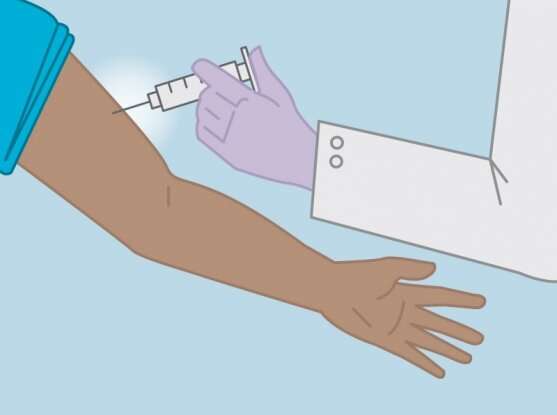
New tool could help researchers design better cancer vaccines
A computational model could improve the selection of tumor antigens for personalized cancer vaccines that are now in early-stage clinical trials.
Every cell in the human body is coated with fragments of proteins called antigens that tell the immune system what’s inside the cell. Antigens presented on cells that are infected by foreign invaders or have become rogue cancers prompt an immune attack. Such antigens are often used in vaccines to spur immune responses against, for example, viruses like the flu. But to make vaccines that effectively stimulate attack against cancer, researchers need to predict exactly which tumor-specific antigens will be displayed on tumor cells and hence would be the best ones to put in a cancer vaccine.
Now, scientists at the Broad Institute of MIT and Harvard, Dana-Farber Cancer Institute, and Massachusetts General Hospital have developed a new computational tool that could help with this task. The researchers turned to machine learning to analyze a diverse set of more than 185,000 human antigens that they discovered, and generated a new set of rules that predict which antigens are presented on the surface of a person’s cells. The findings, published today in Nature Biotechnology, could aid in the development of new treatments that stimulate the immune system to attack cancer as well as viruses and bacteria.